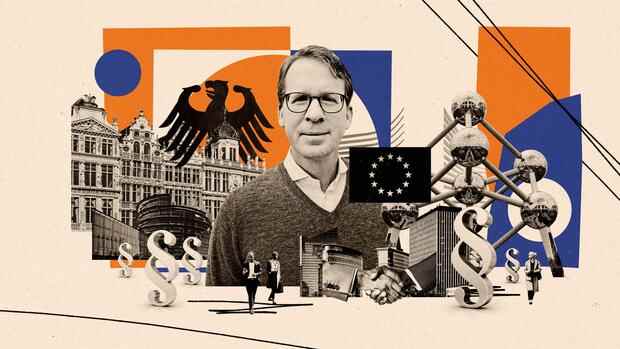It is probably due to the beginning of autumn that Europe is experiencing a change in mood. Falling temperatures herald times of hardship, horrendous heating costs and company bankruptcies. “The coming winter could be the worst in history,” predicted EU Monetary Affairs Commissioner Paolo Gentiloni recently. Doomsayers are in business.
The mood is significantly worse than the situation. The war in Ukraine now has a clear loser: the aggressor Vladimir Putin. At the end of February, when the Russian tanks rolled towards Kyiv, few had dared to make this prediction. The Russians seemed overpowered, the Europeans powerless.
But the tide has turned. Putin, exposed and isolated, is losing on all fronts, military, political and economic.
Admittedly, it was primarily the bravery of the Ukrainian defenders and the multi-billion dollar arms shipments from the United States that turned the tide of war. But Europe also played a decisive part in the fact that Putin’s war of conquest has become a rearguard action.
Top jobs of the day
Find the best jobs now and
be notified by email.
The sanctions regime is having an effect. The assertion that the Europeans suffered more economically than the Russians shows economic ignorance or, as Sarah Wagenknecht sees it, propaganda intentions. Going cold turkey on Russian gas is expensive and painful, but temporary. It will only become a risk to Europe’s existence if Europeans succumb to energy nationalism.
Russia, on the other hand, can only slow down its economic decline, even in the ideal case, it cannot stop it. The energy partnership with the EU has been destroyed, permanently. And it will be years before it can be replaced by a gas alliance with China.
>> Read about this: How Russia is trying to bring more and more gas to China
The strong rouble, which sanctions critics see as evidence of Russia’s economic resilience, is the result of weakness: the Russians earn money on the commodity markets that they cannot spend. The Western tech embargo prevents urgently needed imports – and thus the rearmament of the Russian army.
Politically, a similar picture emerges. The myth of the lonely west is just that: a myth. Yes, outside of Europe and North America, few countries have joined the Russian sanctions. But it is misleading to construct secret support for Putin from this.
When the United Nations voted a few days ago to allow Ukrainian President Volodymyr Zelensky to give a video address, even neutrality-minded India sided with Ukraine.
Putin, on the other hand, had to be taught by his most important international partner, China’s head of state Xi Jinping, and meekly testified in front of the cameras that he understood Chinese concerns about the situation in Ukraine. This shame will have a long lasting effect.
Read about this: New axis Russia-China – The future world order now depends on three questions
Meanwhile, the Ukrainian counter-offensive continues to plague the Russian troops. While fleeing the areas around Kharkiv, the invaders apparently left behind dozens of main battle tanks and more than 100 infantry fighting vehicles, which can now be integrated into the Ukrainian armed forces. The next front breakthrough could succeed in the south.
What follows? Reason for confidence, but not for howling in triumph. The situation remains dangerous, the risk of escalation high. So far, the Europeans have managed to strengthen Ukraine without the war spiraling out of control. The Western strategy of harsh economic penalties against Moscow combined with a willingness to engage in dialogue and a gradual expansion of arms deliveries to Kyiv is working. It requires patience and prudence, not bravado, but definitely not defeatism.
More: Negotiate or escalate? Vladimir Putin under pressure after military setbacks
